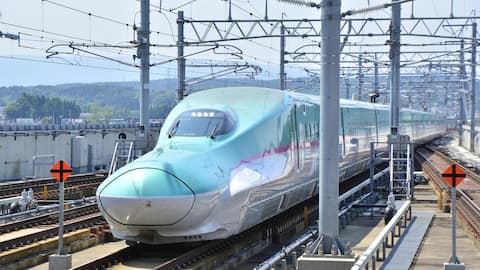Japan's bullet trains likely to get 'private rooms' from 2026
What's the story
Japan's renowned Shinkansen trains (or the "bullet trains" as known to the world) are all set for a significant upgrade. Starting in 2026, certain trains on the busy Tokaido line, connecting Tokyo, Nagoya, and Osaka, will feature "private rooms" in their premium section. According to Japan Rail's statement, this enhancement is designed to "meet the diversifying needs of customers due to changes in lifestyles and work styles."
Room features
Private rooms to cater to a variety of passengers
The private rooms are designed to cater to a variety of passengers, including "businesspeople who want to hold meetings online, customers who value privacy, and customers who want to relax without worrying about their surroundings," conveys the statement. These exclusive spaces will be equipped with Wi-Fi, air-conditioning, reclining seats, and adjustable lighting. Each upgraded train model will house two such rooms.
Limited availability
Private rooms will be available in the 'Green Cars'
The private rooms will not be available on all high-speed trains on the Tokaido line. They will be situated in the "Green Cars," which are the first-class, more expensive cars on Shinkansen trains. Even passengers with a JR Rail pass will need to pay an additional fee to access these private rooms. Information regarding pricing and reservations is yet to be released.
Historical significance
The Tokaido Shinkansen: Japan's first high-speed rail line
The Tokaido line holds a rich legacy as Japan's first high-speed rail line since its inception in 1964. It remains the most actively used line in the country, with multiple departures per hour and trains reaching speeds of up to 285km/h (177mph). The Shinkansen trains have consistently been popular among both locals and tourists, undergoing numerous modifications since their initial launch.
Fame
Here's why Japan's Shinkansen trains are famous around the world
Japan constructed the world's first high-speed rail network 50 years ago, and it continues to be the gold standard in train travel today. Over 350,000 annual trips carry tens of millions of passengers throughout Japan with sublime efficiency; the average delay time is less than a minute! This rail network has inspired several other countries to up their train transit game, making it a revered addition to Japan's global standing.
